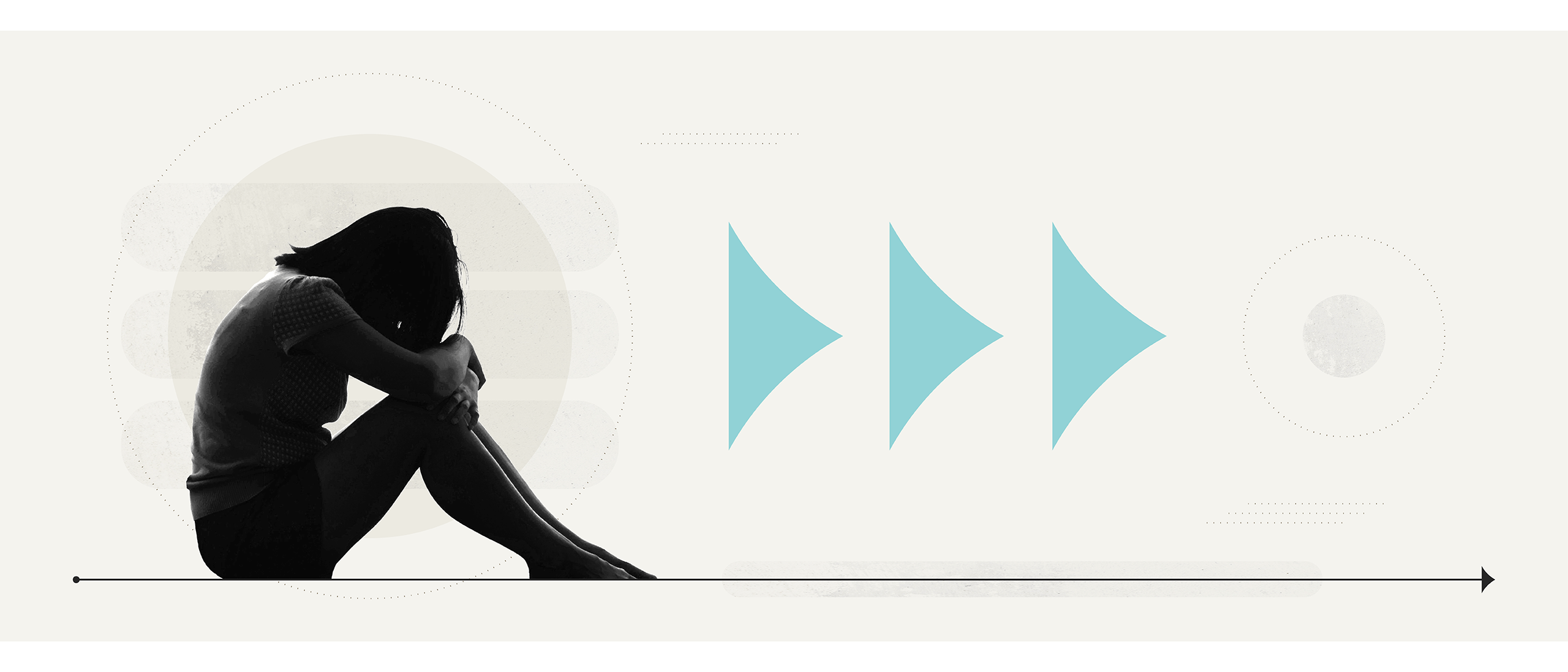Grief Looks Different for Everyone; Bereavement Leave Should, Too
Although we as Americans seemed to have collectively agreed to #neverforget, occasionally I’ll come across someone who forgets what day it is. It happens more often these days, as I meet and work with Gen Z folks who weren’t yet born that day or were too young to remember it. And when it happens, I fight back angry, maybe even envious, tears. Because I can’t help but remember.
Every year, I revisit the trauma of that day—commuting to work like any other Tuesday, feeling the first hint of fall in the air and seeing that gorgeous blue sky. For some reason, I always remember the sky.
I remember going into my office just steps from the White House, a short drive away from the Pentagon. I remember watching the news and the awfulness of what was happening becoming more clear, as the smoke grew more dense.
I remember the phone call from my best friend who lived on the West Coast at the time, asking me to explain, because it was barely 6 am and she couldn’t make sense of what she was seeing. “Have you heard from …?”
And I remember wanting desperately to go home, but my manager at the time made me meet a deadline first—a demand that cost me precious hours that day I’ll always, always wish I had back.
I grieve every September. And I know I’m not alone.
Whether it’s the observance of 9/11, the empty-nest sorrow that hits parents as they send children off to college, or the wrenching loss of a dear loved one (human or pet)—grief hits different and looks different for each of us. It doesn’t always come from death; we can be bereaved by losses of many different types. Bereavement is personal, which is why bereavement leave should be uniquely personal as well.
My immensely talented Mineral colleague Kyle Cupp wrote for USA Today about how he grieves every September, too (and probably every day, in heartbreaking ways I can’t see and don’t know about)—a grief that looks very different from mine, although both are very real and we both deserve to feel seen by our employer in our grief.
He also graciously offered six tips on the Mineral blog that every employer can use as they tailor a personalized response to grief for every employee:
- Document workflows. With clear, documented workflows set up ahead of time, you can quickly reassign work, and a grieving employee doesn’t need to worry about any urgent or time-sensitive work they left behind.
- Educate managers and teammates about the grieving process. Bringing in a grief counselor to talk with employees and educate them about grief can help them support their grieving team member.
- Offer mental health care. It’s likely that grieving employees will need therapy to help them process the loss and work through their emotions. Providing health insurance that covers mental health care can help ease this financial burden.
- Be mindful of decision fatigue. Decision fatigue is very common for grieving people. Even a question like, “What can we bring over for dinner?” can be stressful to answer. One way to avoid this added stress and pressure is to make decisions yourself about what support you give—selecting a gift card to a restaurant, for example, instead of asking the employee which restaurant they’d prefer.
- Be aware of triggers and PTSD. Grieving employees may unexpectedly reexperience the horror, panic, stress, and fear they felt at the time of the event. In some cases, the employee may be diagnosed with post-traumatic stress disorder. Please give the employee time and space to process their emotions.
- And lastly, provide flexible bereavement leave. In many cases, people put their grief on hold so they can make calls and decisions, and support others in their grief as well. Employers can be a big help here by offering bereavement leave and flexibility when the employee returns.
In the United States, the typical bereavement leave policy is three to seven days. Our general recommendation is to offer as much time as you can and communicate with the employee about how much time they feel they need. Some employees may want to come back sooner rather than later because work helps get their minds off the pain. Others may ask for longer because they need more time to heal before they’re able to be fully productive at work.
Understand, too, that grieving employees will have bad days, and grief can come on suddenly, like a ton of bricks. Grieving employees may need extra breaks or need to take a half day unexpectedly.
If ever there was a time for “there’s no one- size-fits-all,” it’s your bereavement policy. Because grief never looks the same. It looks different for every event, for every individual, on every day.


